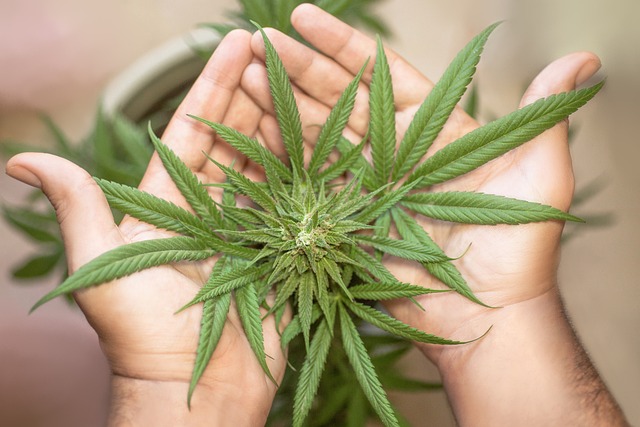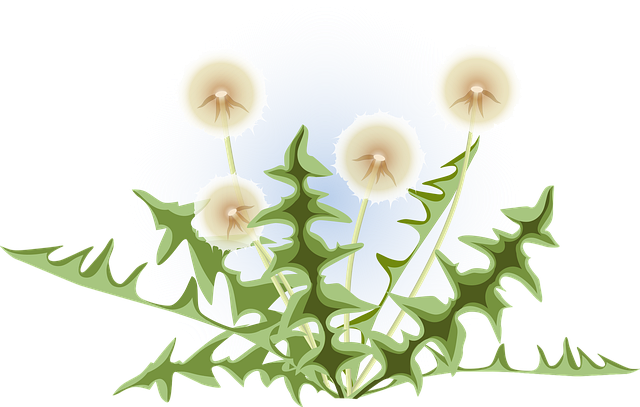South Dakota has embraced the emergence of THCA (Tetrahydrocannabinolic Acid), a non-psychoactive compound found in cannabis that offers potential therapeutic benefits. The state's recent legalization of THCA products reflects a growing interest in harnessing the full spectrum of cannabis benefits without psychoactive side effects. THCA, which is the precursor to THC and abundant in the THCA flower, is gaining popularity for its reported anti-inflammatory and pain-relieving properties. South Dakota's legislative move places it as a leader in exploring the advantages of this cannabinoid, with the THCA flower being legal under state law when derived from hemp compliant with the 2018 Farm Bill and containing less than 0.3% THC on a dry weight basis. This distinction is crucial as it differentiates between legal hemp products and those classified as cannabis under federal law. The unique curing process that preserves high levels of THCA in these flowers has piqued the interest of both researchers and consumers, making South Dakota a notable destination for those interested in THCA's wellness potential. The nuanced legal status and rich trichome composition of the THCA flower underscore the importance of understanding state regulations to engage with the evolving cannabis market effectively.
Explore the intricacies of THCA flower, a non-psychoactive cannabinoid that’s garnering attention for its potential health benefits and role within the cannabis plant’s symphony. This article delves into the legal status of THCA in South Dakota, offering insights into its burgeoning presence in the state’s market. From understanding its botanical properties to exploring cultivation strategies tailored for South Dakota’s climate, we cover the spectrum of THCA flower experiences, including processing and consumption methods, dosage considerations, and the science behind its interaction with the endocannabinoid system. As THCA gains recognition, particularly in legal frameworks such as South Dakota, this comprehensive guide aims to inform and educate on responsible use, therapeutic potential, and the future of research and regulation surrounding this promising cannabinoid.
Understanding THCA: The Precursor to THC

Bethel, South Dakota has recently seen a shift in its cannabis landscape with the emergence of THCA (Tetrahydrocannabinolic Acid) products becoming legally available. Unlike its psychoactive counterpart THC (Tetrahydrocannabinol), THCA is non-psychoactive and is gaining attention for its potential therapeutic benefits. As researchers continue to explore the properties of cannabis, THCA has come to the forefront as a compound that may offer relief from various conditions without the intoxicating effects associated with THC. In South Dakota, where cannabis laws have been evolving, the legality of THCA-rich products has opened up new avenues for consumers looking for alternative wellness solutions. The transition from cultivating and processing traditional cannabis to focusing on preserving THCA in its raw form represents a significant development in the state’s approach to cannabis. This shift not only reflects the changing legal landscape but also the growing interest in the potential benefits of THCA, which some users report can have anti-inflammatory properties and provide pain relief without altering cognitive functions. As such, the thca legal in South Dakota status has positioned the state as a burgeoning market for those interested in exploring the full spectrum of cannabis compounds.
THCA Flower: A Botanical Overview

THCA, or Tetrahydrocannabinolic Acid, is the raw, non-psychoactive precursor to the well-known THC found in cannabis. The THCA flower, rich in this compound, has garnered attention for its potential wellness benefits and botanical intrigue. The flowers, which contain high concentrations of THCA due to their low temperature curing process, are a focal point in the ever-evolving world of cannabis research and consumption. The legal landscape regarding THCA flower is continually shifting, with states like South Dakota carving out specific legislation that defines its status. In South Dakota, as of the knowledge cutoff date, THCA flower falls into a grey area; it’s legal under state law but only if derived from hemp compliant with the 2018 Farm Bill and containing less than 0.3% THC on a dry weight basis. This distinction is crucial for consumers and retailers alike, as it differentiates legal hemp products from those considered cannabis under federal law. The botanical characteristics of the THCA flower are remarkable; its resinous glands, known as trichomes, hold the key to the compound’s potential. These flowers exhibit a wide array of terpenes and cannabinoids that interact synergistically, offering a complex profile that is both fascinating to scientists and appealing to consumers interested in exploring the benefits of this non-intoxicating cannabinoid.
In conclusion, the exploration of THCA flower has shed light on its potential within the realm of cannabinoid-based therapies and wellness practices. Understanding THCA, as the precursor to the more well-known THC, underscores its significance, particularly given the varying legal landscapes across regions such as South Dakota, where it has been legally recognized. The botanical overview of THCA flower highlights its unique profile, offering insights into its distinct properties and the promise it holds for health and well-being. As research continues to evolve, the role of THCA in various applications may become more defined, potentially carving out a niche within the burgeoning cannabis industry.
